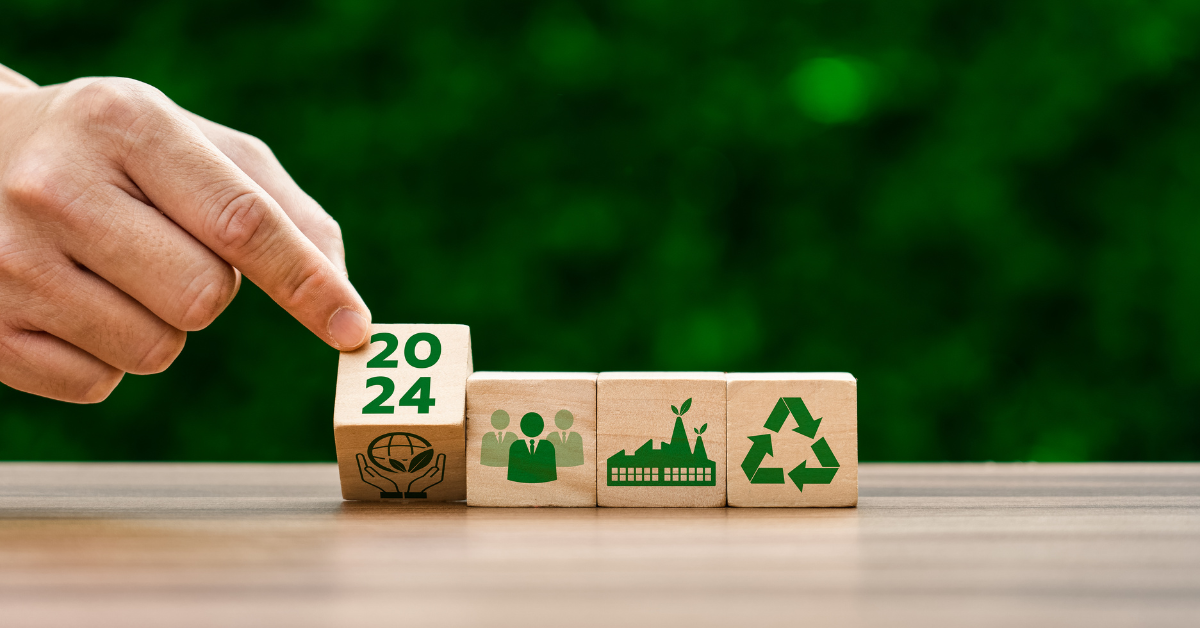
Sustainable Living: Eco-Conscious Practices for a Greener Tomorrow

*Collaborative Post
As our world grapples with pressing environmental concerns, the call for sustainable living practices grows louder. Adopting an eco-friendly lifestyle isn’t just about reducing our carbon footprint; it’s about fostering a harmonious relationship with nature while ensuring a brighter future for generations to come. In this blog post, we delve into the realm of sustainable living, exploring actionable tips and practices to embrace a more eco-conscious way of life.
Understanding Sustainability
Sustainability lies at the heart of preserving our planet’s delicate balance. It involves meeting our present needs without compromising the ability of future generations to meet their own. This holistic approach considers environmental, social, and economic factors, recognizing the interconnectedness of human well-being and environmental health. By embracing sustainability, individuals can play a vital role in safeguarding natural resources and promoting a more resilient and equitable society.
SEO for Sustainability
In the digital landscape of sustainable living, optimizing your content for search engines is akin to planting seeds for a greener future. Just as nurturing the environment requires thoughtful cultivation, cultivating your online presence demands strategic SEO practices. By harnessing the power of platforms like www.clickintelligence.com, you can sow the seeds of visibility and growth, ensuring that your eco-friendly message flourishes and reaches a broader audience. From keyword research to content optimization, these SEO tools provide the fertile soil necessary for your blog to thrive in the ever-expanding ecosystem of online sustainability.
Reducing Waste
A fundamental pillar of sustainable living is minimizing waste production. From disposable plastics to excess packaging, our throwaway culture contributes to environmental degradation on a massive scale. Transitioning to a zero-waste lifestyle involves rethinking our consumption habits and opting for reusable alternatives. By investing in reusable bags, bottles, and containers, individuals can significantly reduce their contribution to landfills and ocean pollution.
Embracing Renewable Energy
Transitioning to renewable energy sources is paramount in our fight against climate change. Unlike fossil fuels, which emit harmful greenhouse gases, renewable energy sources such as solar and wind power offer clean and sustainable alternatives. By harnessing the power of the sun and wind, individuals can reduce their carbon footprint and promote a more sustainable energy future. Installing solar panels or opting for green energy providers are tangible steps towards reducing our reliance on non-renewable resources.
Sustainable Transportation
Transportation constitutes a substantial portion of global carbon emissions. Opting for sustainable modes of transportation such as walking, cycling, or utilizing public transit can significantly diminish individuals’ environmental footprint while enhancing air quality within their communities. Moreover, embracing electric or hybrid vehicles serves to further curtail greenhouse gas emissions and diminish our reliance on fossil fuels, thereby fostering a planet that is both cleaner and healthier.
Eco-Friendly Home Practices
Creating an eco-friendly home environment involves making conscious choices about energy consumption, water usage, and household products. Energy-efficient appliances, low-flow fixtures, and eco-friendly cleaning products are essential components of a sustainable household. Additionally, incorporating natural materials such as bamboo, cork, and reclaimed wood in home decor adds a touch of sustainability to living spaces, promoting a more harmonious relationship with the environment.
Supporting Sustainable Brands
Encouraging the growth of sustainable brands and businesses is pivotal for catalyzing systemic change towards a more eco-conscious economy. Seek out companies that prioritize environmental stewardship, uphold ethical labor practices, and maintain transparency in their supply chains. By actively endorsing these enterprises, consumers wield significant influence in motivating more companies to integrate sustainability as a fundamental principle, thus igniting a transformative ripple effect across various industries.
Conclusion
Embracing a sustainable lifestyle isn’t just a choice; it’s a responsibility we owe to our planet and future generations. By incorporating eco-conscious practices into our daily lives, we can minimize resource depletion, reduce pollution, and mitigate the impacts of climate change. Whether it’s reducing waste, embracing renewable energy, or supporting sustainable brands, every action counts towards building a greener and more sustainable world. Together, let’s pave the way for a brighter tomorrow through sustainable living practices.
*This is a collaborative post. For further information please refer to my disclosure page.




